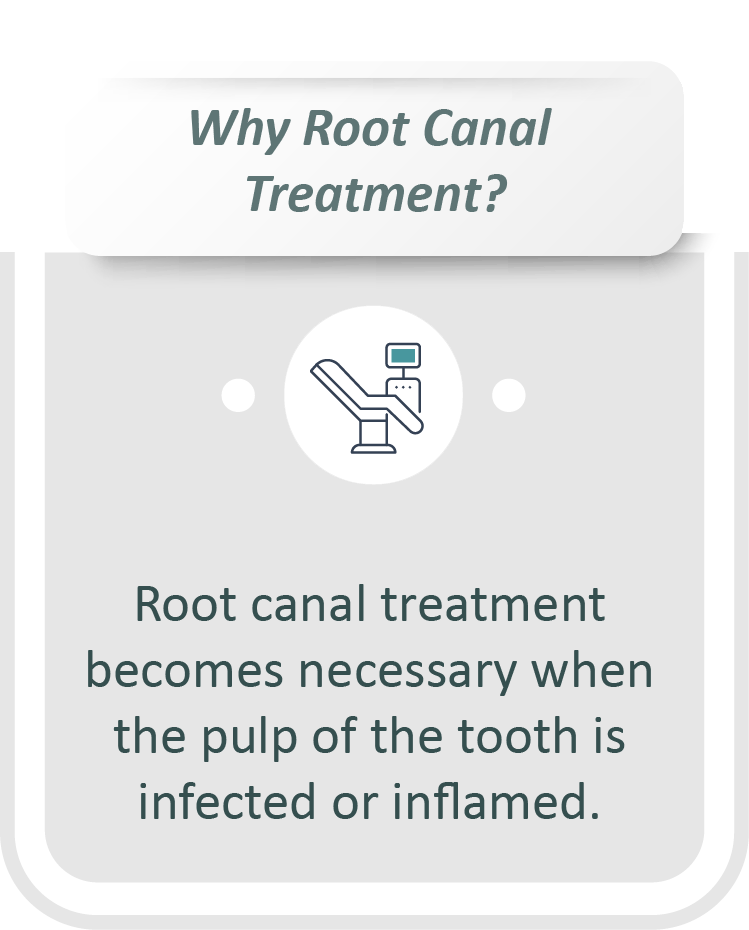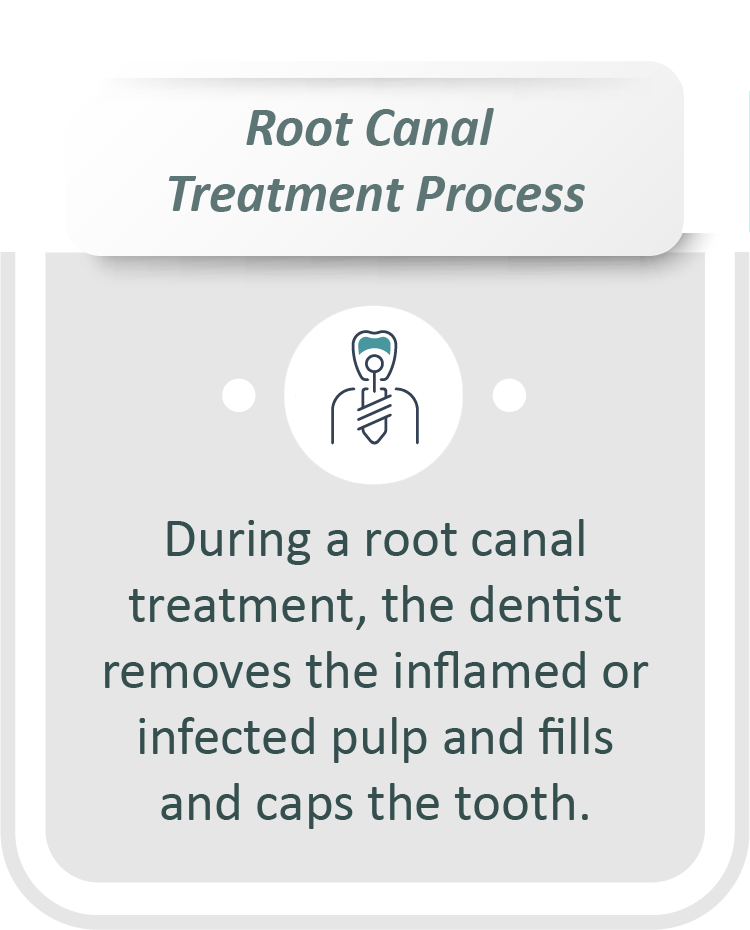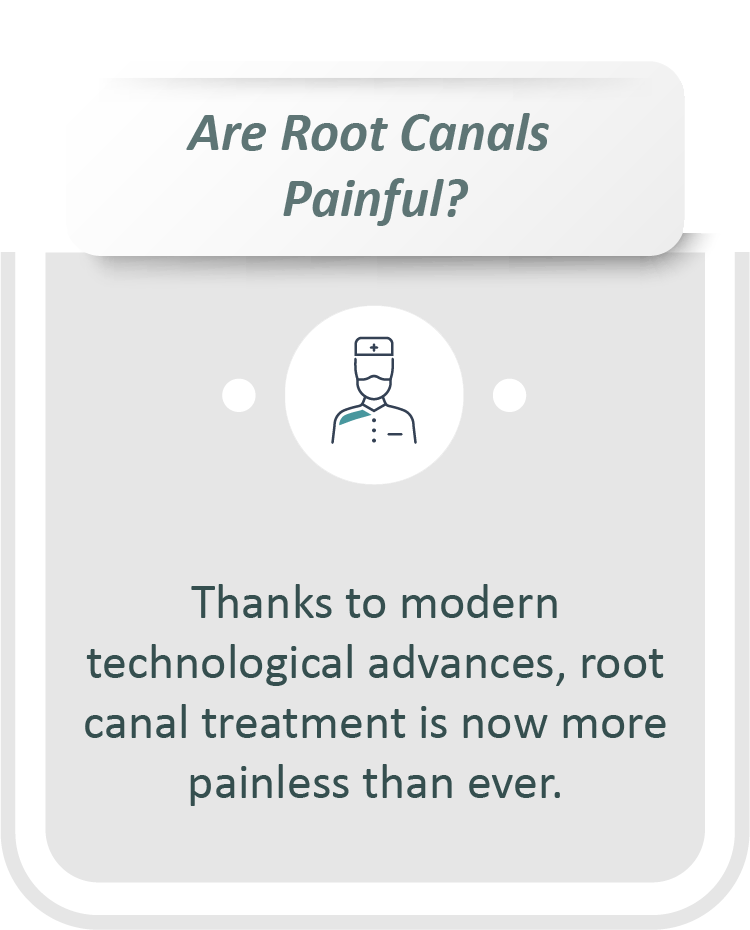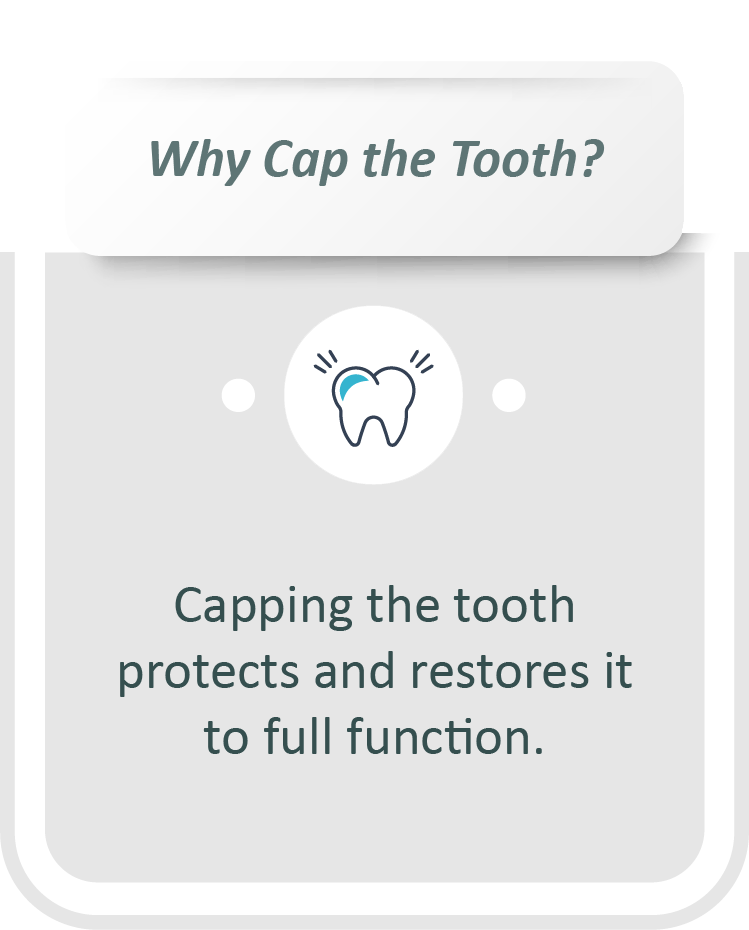Root Canal Treatment Troy, MI
A root canal is a restorative dental procedure that saves millions of teeth from inflammation and infection each year. Root canal treatment involves removing the damaged pulp and nerves from inside the tooth to eliminate bacteria and prevent the infection from spreading. If you have an infected tooth, root canal treatment may be able to save it.
Root canal treatment is available at Dental First in Troy and the surrounding area. This procedure can relieve dental pain and save your tooth. Call us at (248) 729-2506 to learn more about our services or schedule an appointment today.
Understanding Root Canals
Below the enamel and dentin, there is pulp at the center of a tooth. The pulp contains blood vessels, nerves, and connective tissue. When the pulp becomes injured or infected, the patient may experience swelling, infection, and pain. Even when outwardly apparent symptoms are not present, bacteria within the root canal may cause decay and damage to the jawbone. In many cases, a root canal may be necessary to save the tooth.
A root canal can remove the infected or inflamed pulp to prevent further issues. Various situations can call for a root canal, such as repeat dental work on the same tooth, cracks or chips, deep cavities, or a tooth injury. Signs that a patient may need root canal treatment include bumps along the gums, darkening gums, severe pain or sensitivity while biting or chewing, and swollen or tender gums. People should be aware that the signs of root canal infection or injury are not always obvious and that a thorough examination may be necessary for diagnosis.
“A root canal can remove the infected or inflamed pulp to prevent further issues.”
Root Canal Treatment Benefits
The goal of root canal treatment is to save and preserve the natural tooth. One of the biggest benefits of root canals is getting rid of pain and infection in the mouth. Additional benefits include:
- Improved appearance: After root canal treatment, the patient will receive a crown or filling that restores their tooth's aesthetic appearance.
- Reduced risk for further decay: Removal of the infected dental pulp prevents the bacteria from spreading and damaging the surrounding teeth.
- Restored function: Root canals restore a tooth's health to function like any other tooth.
- Saving the natural tooth: Nothing can replace the look and function of a natural tooth.
” The goal of root canal treatment is to save and preserve the natural tooth.”
The Root Canal Process and Potential Complications
According to Healthline, root canal treatment typically involves four steps. First, we will take an X-ray of the infected tooth and numb the treatment site. Next, we will place a dental dam, or small protective sheet, over the area to protect the spot from saliva and bacteria during the procedure. Then we will make a small incision near the tooth's crown to expose the infected pulp before removing the infected tissue and cleaning out the pathways. Once the canals are clean, we may apply a topical antibiotic to kill any remaining infection. Once the tooth is filled and sealed, we will place a crown or other restoration to protect the tooth and restore its functionality.
As with any semi-invasive procedure, root canal treatment is not without its risks. In some cases, the damage is too extensive for treatment to be viable. If root canal treatment occurs in this situation, it could result in tooth loss. Though rare, root canal treatment can also result in abscesses. This typically only occurs if the improper infected pulp removal occurs or if the antibiotics are ineffective. Although there is a risk for potential complications, root canal treatments are generally safe and effective, with a success rate between 86-98%.
“Although there is a risk for potential complications, root canal treatments are generally safe and effective, with a success rate between 86-98%.”
Check out what others are saying about our dental services on Yelp: Root Canal Treatment in Troy, MI
Preventing the Need for Root Canal Treatment
Although root canals are effective procedures to restore infected or damaged teeth, it is best to avoid the need for a root canal in the first place. Preventing the need for root canal treatment is simple, maintain a good oral hygiene routine. Since root canals are often necessary due to tooth decay, people can help prevent this by brushing twice and flossing once every day.
It is also essential to attend regular dental appointments and seek dental attention as soon as possible when pain or discomfort arises. People can also take certain actions to avoid tooth damage than can necessitate root canal treatment. This includes avoiding acidic foods and beverages, not chewing on ice, and wearing a mouthguard while playing sports and at night if teeth grinding occurs.
“Although root canals are effective procedures to restore infected or damaged teeth, it is best to avoid the need for a root canal in the first place.”
Questions Answered on This Page
Q. What are the benefits of a root canal?
Q. What happens during root canal treatment?
Q. How can someone prevent the need for a root canal?
Q. What is an alternative to root canal treatment?
People Also Ask
Q. How common are root canals?
Q. Are there any alternatives to root canals?
Q. How can a root canal help save my cracked tooth?
Q. Is increased sensitivity to temperature a sign that endodontic surgery is necessary?
Q. What is the difference between endodontists and dentists?
Alternatives To Root Canal Treatment
Root canals are safe and effective procedures to save a tooth. However, some situations may require alternative treatment, such as extraction. Extraction involves pulling out the entire tooth.
This treatment takes more time and can necessitate further procedures to surrounding teeth and supporting tissue. It is always best to try and save a natural tooth when possible. Extractions are best for when a tooth is too damaged to be saved with a root canal.
“Extractions are best for when a tooth is too damaged to be saved with a root canal.”
Frequently Asked Questions
Q. How much does a root canal cost?
A. The cost of a root canal treatment will vary for each patient. Factors that may affect the cost include the extent of damage, the location, and whether insurance covers part of the procedure. People should contact their insurance provider for more information.
Q. Does insurance cover root canal treatment?
A. Every insurance plan is different. Since root canals are considered a medically necessary treatment, most dental insurance plans will provide some treatment coverage. People will have to contact their insurance provider to learn more about coverage before seeking treatment.
Q. How long does it take to recover from a root canal?
A. Recovery following a root canal is often quick and painless. Though soreness and discomfort are normal in the days following treatment, most patients can return to school, work, and their daily activities the next day. Pain that extends beyond a couple of days may indicate a problem.
Q. Are root canals painful?
A. Many people believe that root canals are painful. Though discomfort is common, the treatment is typically no more painful than having a cavity filled. However, nervous patients should discuss their fears with their providers beforehand.
Q. How should I take care of my tooth after root canal treatment?
A. Although it is normal to experience swelling and inflammation after the root canal, patients can take over the counter pain medication to minimize discomfort. We recommend not chewing on the tooth to keep the area clean and prevent the tooth from breaking before we restore it completely. Patients will need to have a follow-up appointment after treatment to ensure that the healing process progresses well.
Endodontic Terminology
Call Us Today
If your tooth is injured or infected, do not hesitate to seek treatment. Our team at Dental First can help save your tooth. Call us today at 248-729-2506 to learn more about our services or schedule an appointment.
Helpful Related Links
- American Dental Association (ADA). Glossary of Dental Clinical Terms. 2023
- American Academy of Cosmetic Dentistry® (AACD). Home Page. 2023
- WebMD. WebMD’s Oral Care Guide. 2023
About our business, license, and website security
- Dental First was established in 2009.
- We accept the following payment methods: American Express, Cash, Check, Discover, MasterCard, and Visa
- We serve patients from the following counties: Oakland County, Macomb County, Oceana County, and Wayne County
- We serve patients from the following cities: Troy, Royal Oak, Sterling Heights, Rochester Hills, Bloomfield Hills, Birmingham, Madison Heights, Warren, Shelby, and Detroit
- National Provider Identifier Database (1841482239). View NPI Registry Information
- Healthgrades. View Background Information and Reviews
- Norton Safe Web. View Details
- Trend Micro Site Safety Center. View Details
Back to top of Root Canal Treatment















